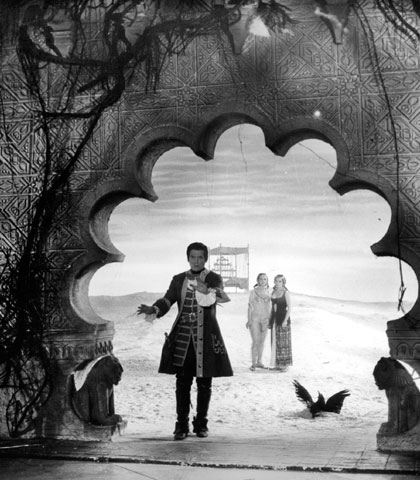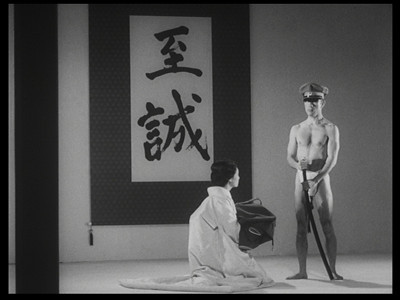Dr. Humpp skrev:Du fik opfattet at VIRUS BIO er slut på Bolsjefabrikken...ikke fordi jeg tror du bevæger dig udenfor din dør.

Pushing his themes of sexual liberation to their boiling point, Yugoslavian art-house provocateur Dušan Makavejev followed his international sensation WR: Mysteries of the Organism with this full-throated shriek in the face of bourgeois complacency and movie watching. SWEET MOVIE (1974) tackles the limits of personal and political freedom with kaleidoscopic feverishness, shuttling viewers from a gynecological beauty pageant to a grotesque food orgy with scatological, taboo-shattering glee. With its lewd abandon and sketch-comedy perversity, SWEET MOVIE became both a cult staple and exemplar of the envelope pushing of 1970s cinema.

Occasionally, one comes across a truly original, cinematic one-off that has no genre antecedent. Such is the case with Nikolaidis Nikolaidis’ SINGAPORE SLING, his 1990 neo-noir nightmare. If one could wrap one’s mind around the idea of Pier Paolo Pasolini (SALO) directing Otto Preminger’s great 1944 film noir classic LAURA, (which this sends up!) with a generous assist by underground filmmaker Curt McDowell (THUNDERCRACK), with some cribbage from the Marquis de Sade, you may have an inkling of the cumulative yuck-factor of this high gloss sick-fest. Like the eponymous cocktail of the title, the movie’s stately concoction of horror, humor, and eye-dropping perv is an acquired taste. SINGAPORE SLING offers no comforting middle ground.

2200Kultur er en sammenlægning af Nørrebro Bibliotek, Nørrebrohallen og Osram-huset. Alt sammen under kommunen. Osram-huset skal fungere som kulturhus og nu er de begyndt at lede efter indhold.








An epic, dreamlike stream-of-consciousness film, Wojciech Has’s cinematic adaptation of Bruno Schulz’s story 'Sanatorium under the Sign of the Hourglass', is a cinematic feast, featuring superb performances, atmospheric flair and other-worldly sets.
Set in the pre-World War II era, the film sees Joseph (Jan Nowicki) travelling on astrange, dilapidated train to see his dying father (Tadeusz Kondrat) in a sanatorium. Upon arrival though, he finds a hospital crumbling into ruin, where time is slowed down in order to maintain his father’s life signs. As he is beset by events and figures from his own past, Joseph is visited by the fantasies and moments of his youth, before having to face up to the pedestrian present and the responsibility of middle age. A film that served as a precursor to the works of Terry Gilliam and Tim Burton, and a favourite of the Quay Brothers, Hourglass Sanatorium is a surreal exploration of immortality, memory and psychoanalysis.

Directed, produced and acted by the infamous writer/political idealogue Yukio Mishima, this short, minimalist and stark film offers an unflinching depiction of Mishima's personal and political ideology. Filmed just four years prior to his suicide, the undeniable similarity between this film's narrative and Mishima's own personal demise caused the film to be "destroyed" at his wife's request shortly thereafter. In 2005, following his widow's death, the film was re-released. It is nothing short of fascinating, particularly for those familiar with the political views and death of Mishima.
This is an eery, almost haunting film given its similarity to the reasons and methods whereby Yukio Mishima took his own life on November 25, 1970. Mishima himself said of the film that it was the purest and most complete statement of what he had striven to say through his myriad writings and dialogues.


Brugere der læser dette forum: Ingen og 7 gæster